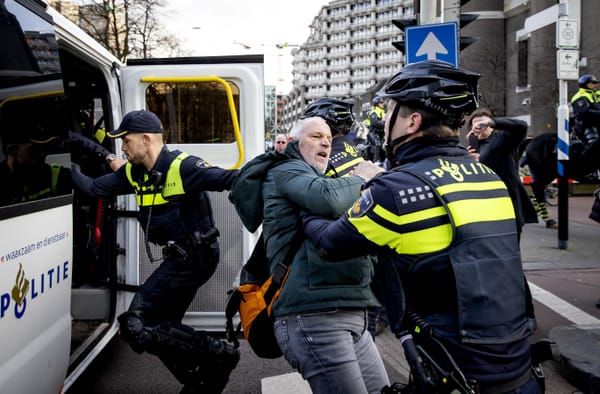The United Nations believes that a food catastrophe looms around the corner. A report published this month by the World Food Program, the UN agricultural agency, warns that by the end of the decade, 670 million people, roughly 8 percent of the human population, will struggle to feed themselves. Which raises the question: Why are governments increasingly hindering the work of farmers, the group responsible for feeding the world?
Eighty years ago, in my country of Ireland, then-Agriculture Minister James Ryan signed into effect the compulsory tillage scheme. Amid the supply crises precipitated by World War II, the scheme barred farmers from using their land for any other purpose than the cultivation of wheat and other crops. The intervention enraged farmers. The ruling meant dairy farmers were prevented from using their land to feed cows for milking, and beef farmers were prevented from raising cattle for the country’s meat factories. Similarly, pig and sheep farmers couldn’t use land to feed and fatten up their animals. Farmers who refused to submit to the new law or failed their mandatory quotas had their lands seized by the state.
Fast-forward to today, and Irish farmers are again being threatened. Cut back on emissions, they are being warned, or face as-yet-unspecified consequences. Irish farmers are far from alone. Around the world, from County Carlow to California, farmers are being ordered not to work. But aren’t we in the midst of an “everything crisis,” with shortages of bread, meat, and dairy products dogging consumers, especially the poor and working classes?
“The emissions reductions demanded … would mean slashing the number of cattle, chickens, and pigs by at least 30 percent.”
In the Netherlands, tens of thousands of farmers have been demonstrating for weeks. They object to the Dutch government’s new plans to drastically reduce nitrogen emissions. The human costs of the new green diktats are grave. Known for its tulips, windmills, and canals, the Netherlands is also the European Union’s largest exporter of meat and is home to some 1.5 million dairy cows and calves. The emissions reductions demanded by the government would mean slashing the number of cattle, chickens, and pigs by at least 30 percent.
As I write, farmers are clashing with police in the streets. Things have become increasingly heated, with Dutch police firing shots at tractor-riding farmers. Security forces insist that they fired shots in response to a “threatening situation.” Of course, the farmers could say that they, too, are facing a threat—one that imperils not only their own livelihoods, but the ability of millions of Europeans to put food on the table.
Notwithstanding the unrest, neighboring countries like Belgium and Germany are planning to introduce similar measures targeting farmers, according to Politico. Make no mistake about it, traditional farming is under severe attack.
Like their Dutch counterparts, British farmers play a crucial role in providing milk and meat to the masses, but their government, too, appears committed to encouraging dairy and meat farmers to leave the industry. In return for a one-time, lump-sum payment, traditional farmers are expected to “surrender their entitlements” and create “real opportunities for new farmers.” But who exactly are these new farmers?
“New farmers,” in truth, mean new, more “sustainable” farming methods. The aim, according to the arch-neoliberal World Economic Forum, which is actively encouraging farmers to embrace “climate-smart” methods, is to make the full switch to “net-zero, nature-positive food systems” by 2030. In other words, organic farming.
But as studies show, organic farming is, ironically enough, not sustainable. It might work for small communities, but at a macro level, it fails miserably, both economically and environmentally. Anyone who doubts this should examine Sri Lanka, a country facing state collapse caused, in part, by a ban against traditional fertilizers and pesticides in favor of organic, climate-friendly alternatives that can’t sustain large-scale farming.
In the United States, the Biden administration, in an attempt to address the “existential threat” of climate change and promote “environmental justice,” is also cracking down against traditional farming methods. Under the administration's expansion of the Conservation Reserve Program, farmers are being paid to leave their land fallow. As the author Shea Swanson recently noted, “35,000 acres of rice fields in the northern Central Valley” of California will remain completely unused this year. Similarly, EU elites are committed to creating emissions rules that one member of the European Parliament has rightly described as a “bureaucratic nightmare for farmers.”
What is being done to farmers from Ireland to the Netherlands, and Britain to Sri Lanka, should alarm all of us. Without farmers, we don’t eat. We must stand in solidarity with those who make our food—and remain wary of those who would starve us in the name of progress.
